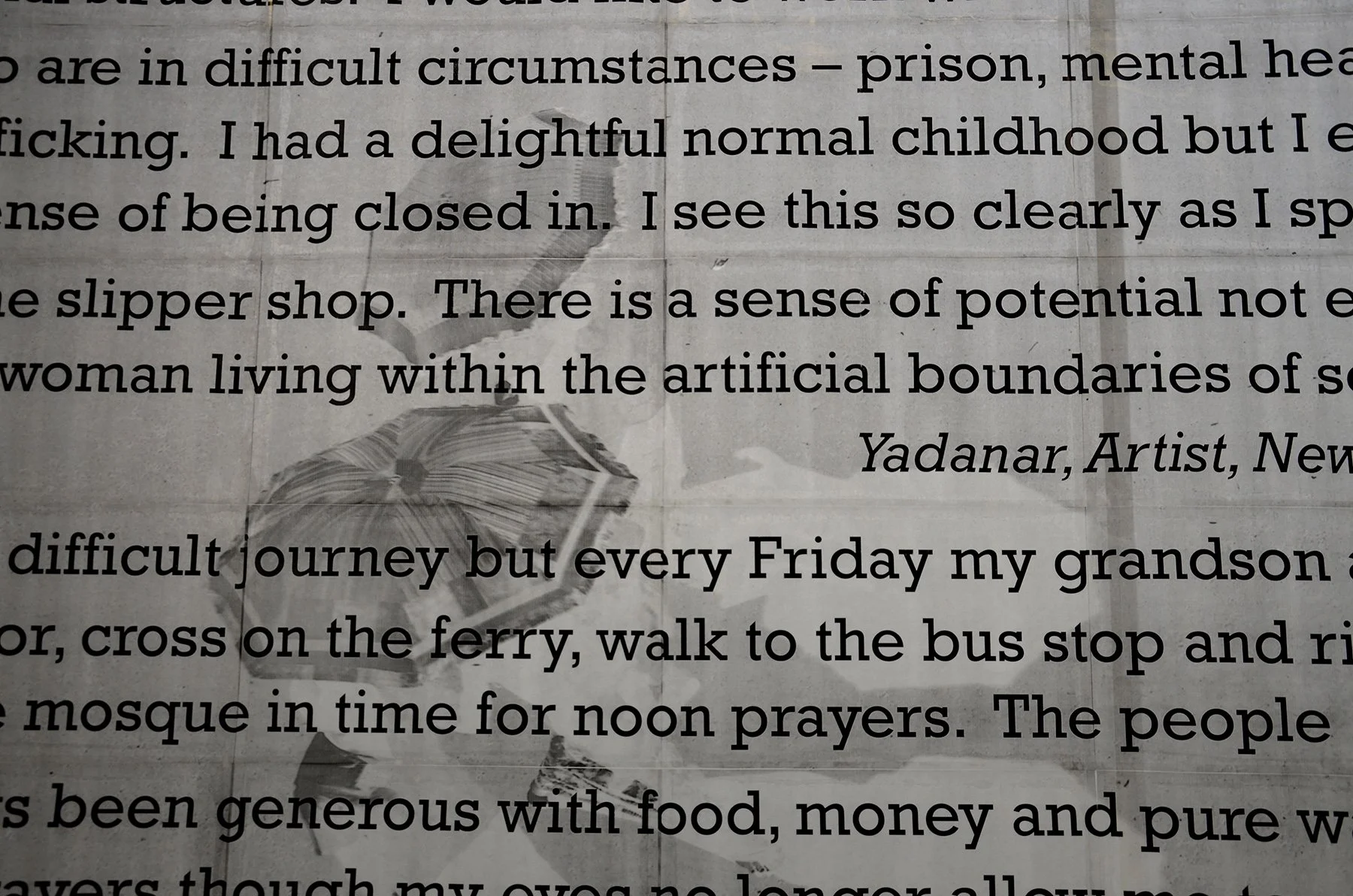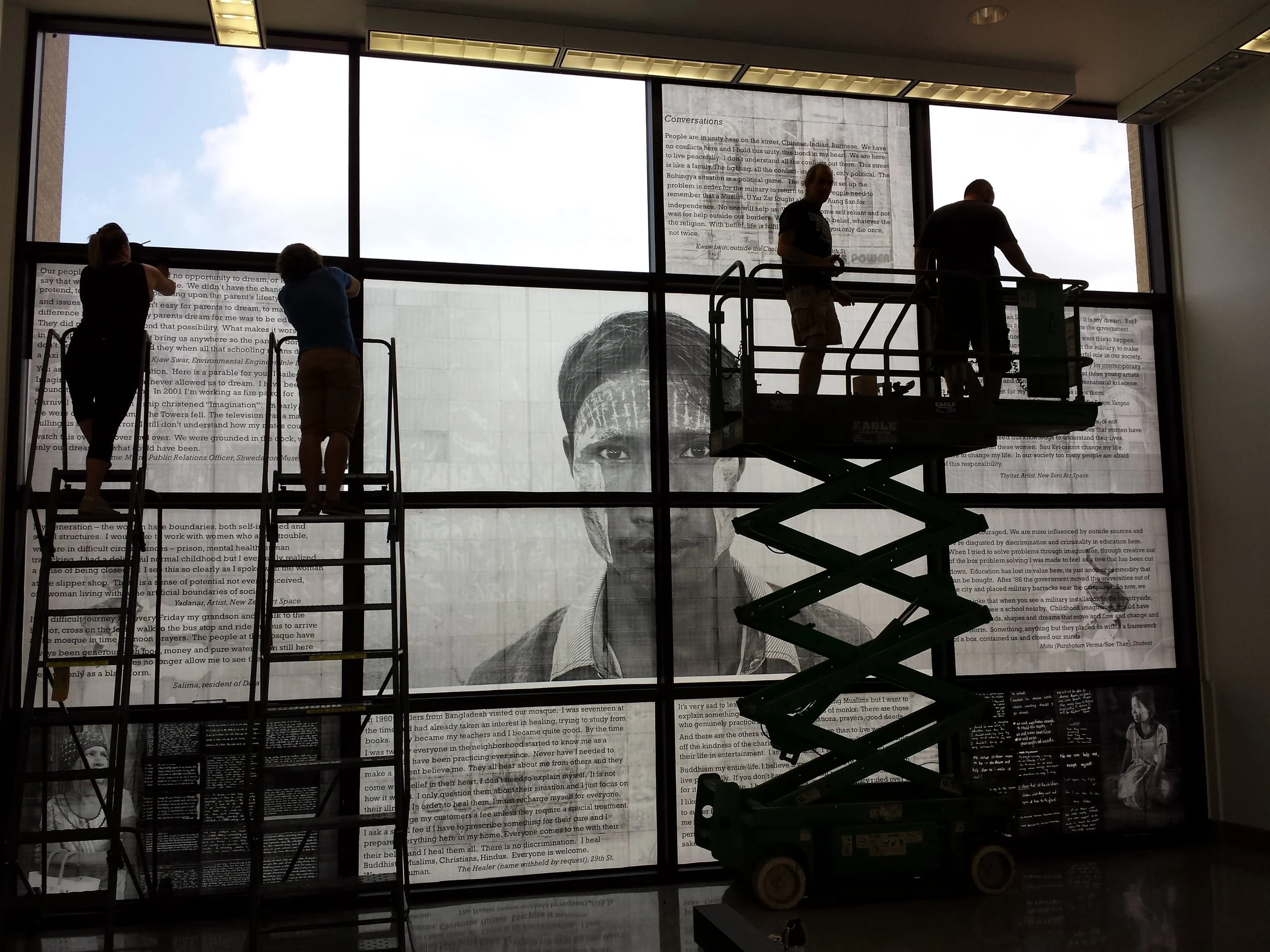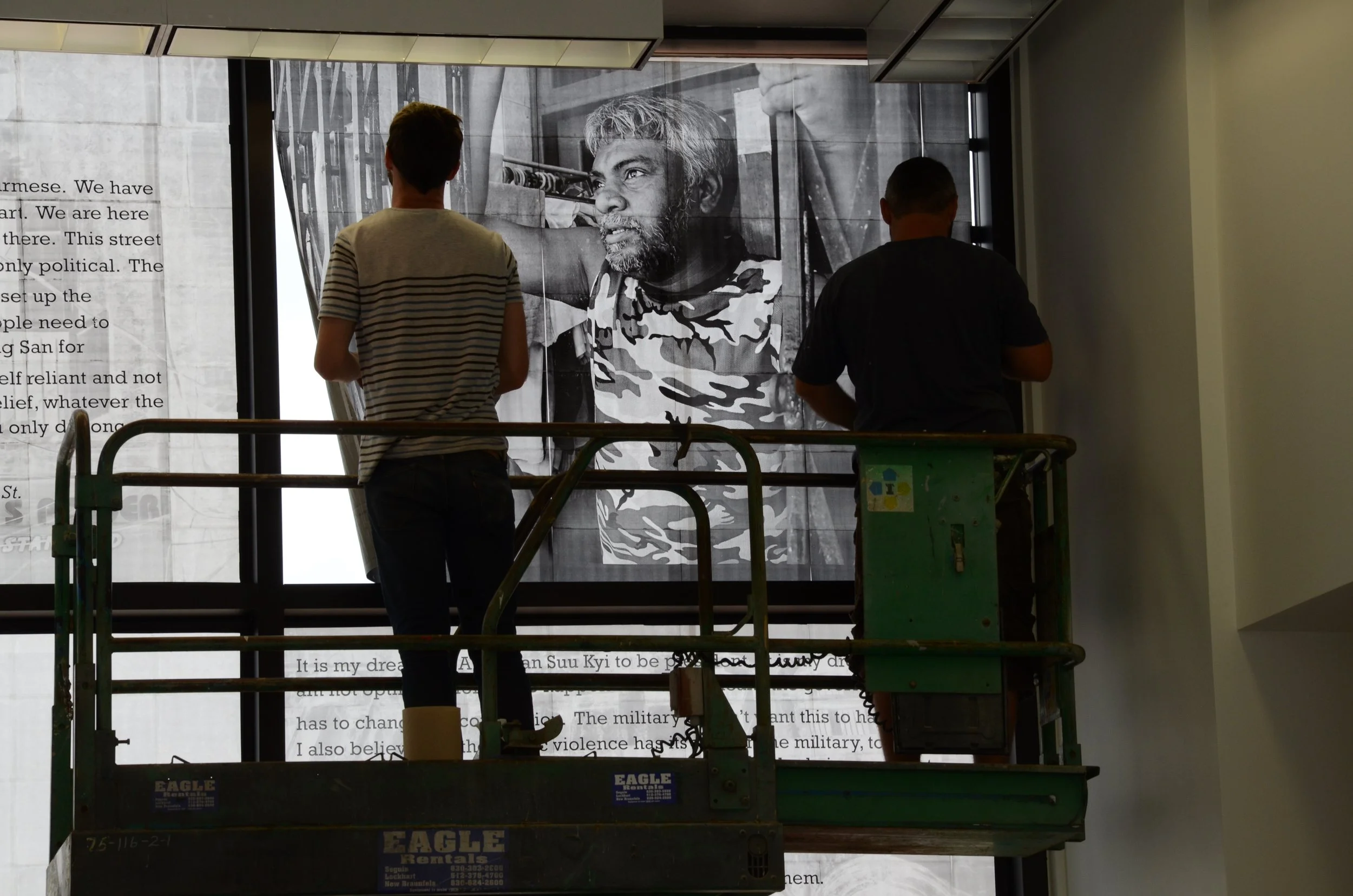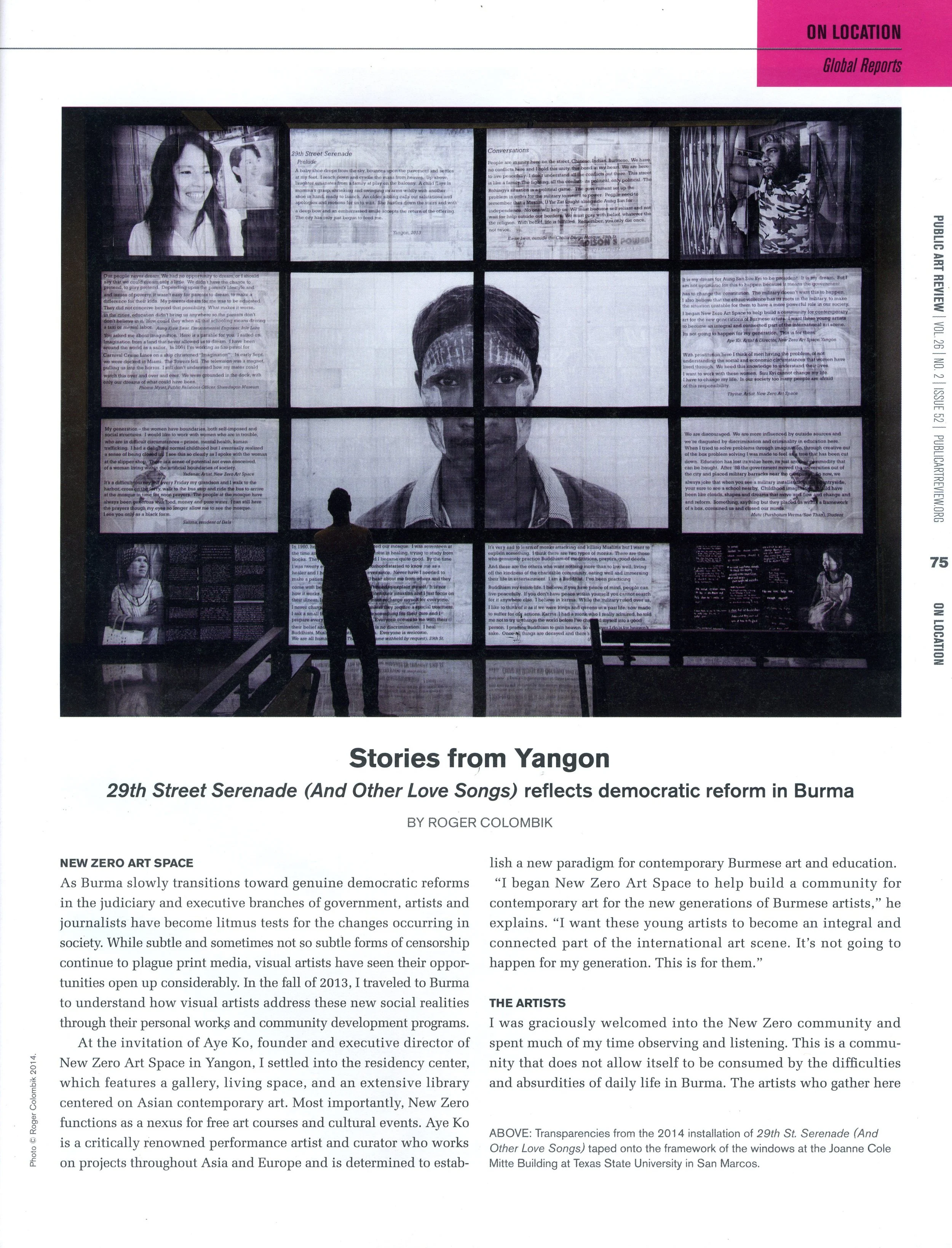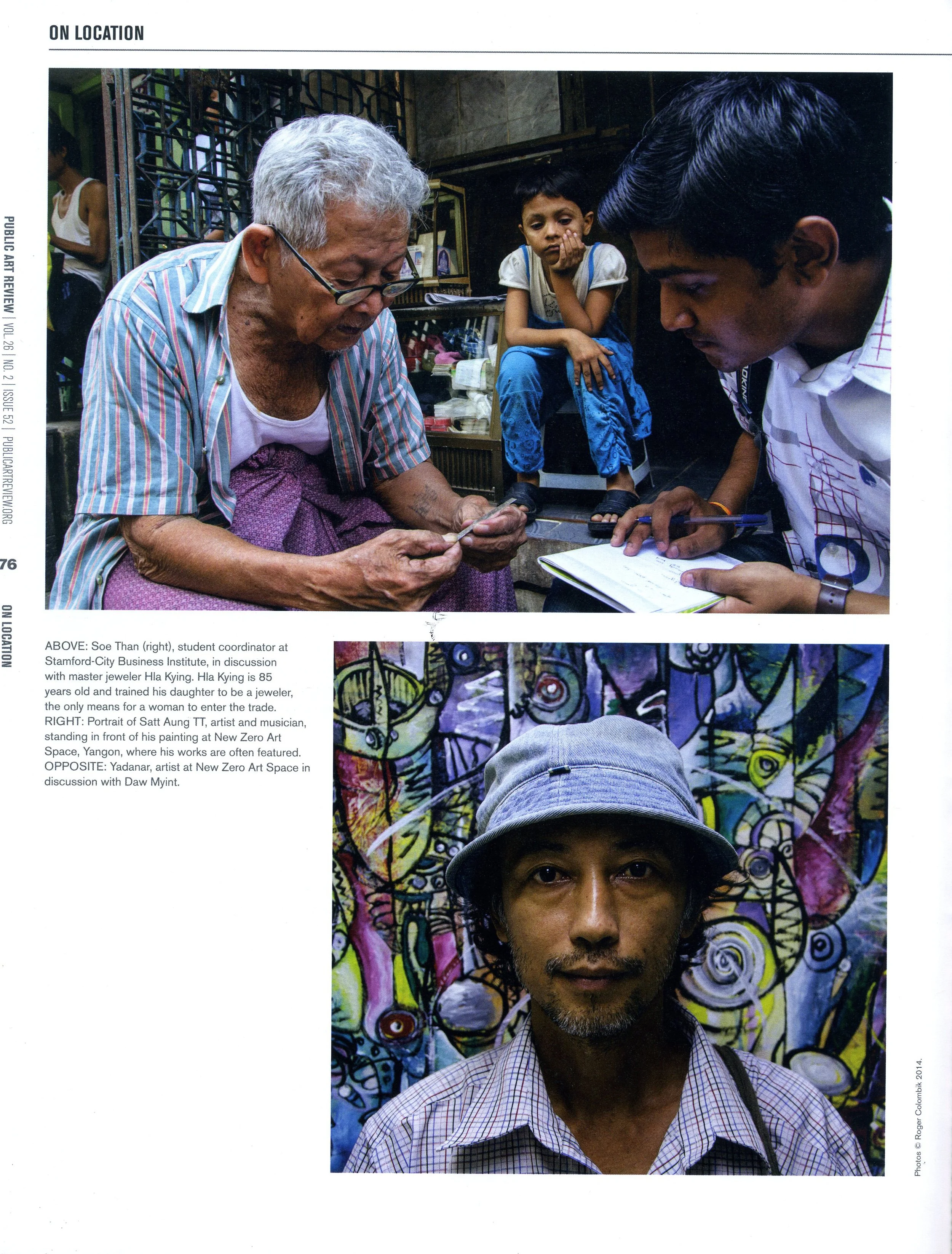29th Street Serenade - The Burma Project
Suu Kyi cannot change my life. I have to change my life. In our society, too many people are afraid of this responsibility.
Thyitar, Artist at New Zero Art Space,Yangon
29th Street Serenade (& Other Love Songs) is a collaborative endeavor that explores the historical tales and cultural identity within one neighborhood in Yangon, Burma. The catalyst for this undertaking was the mind-bending experience of walking through the 29th Street district for the first time.
The sounds, smells, images and most importantly, the ease of conversation with people in the street struck a profound cord of cultural engagement that made everything that followed possible. Artists from New Zero Art Space helped with initial introductions to the 29th Street community and established my “its okay to talk to him, he’s an artist not a journalist” street cred. Meagan and Chase Henry (former TSU students) are program directors for the NGO Love for Myanmar as well as teachers at the Stamford-City Business Institute. Several students from their Civics class volunteered to work with me on the project and together we canvased the neighborhood.
There are three sections of 29th street, referred to as “upper 29th”, “middle 29th” and “lower 29th”. Each block contains a distinct network of shops, restaurants and residents of varying ethnicities who hold strong opinions about the folks living in the other sections. Upper 29th features the Cholia Darga Mosque, slipper shops, noodle houses, barbershops and the always-bustling Internet phone center for international calls. Middle 29th begins with several electronic repair facilities and parts suppliers before giving way to the goldsmiths whose impeccable skills are handed down through the generations. A robust Hindi community resides in Lower 29th where the architectural remains of The Bombay Burma Press office await destruction (or the miraculous intervention of the preservation committee). Throughout the neighborhood, the upper floors of old British Colonial era buildings have doors opened wide onto balconies where laundry sways off railings and electrical cables converge in an interminable spaghetti in the sky. Most households have a rope with a large binder clip suspended from the balcony, hanging about 6’ above the sidewalk. A shake of the rope rattles a chime on the balcony calling forth the occupants. Salutations are made and a bag of supplies, groceries, etc. are hauled up. Our team used this technology to send up a document stating our objectives for the project, requesting the individual’s participation. This is how we accessed residents on the upper floors.
Street vendors, coolies, publishers, barbers, sailors, cooks, repairmen, jewelers, charcoal merchants, sales personnel, healers, Muslims and Buddhists. Our days were filled with stories and images. We received blessings of poetry and multi-generational family sagas. Together we discovered a highly diverse group of citizens that believe in unity and are optimistic that life will change soon, for the better, for everyone. Most importantly, laughter was plentiful.
Visiting with artists at New Zero Art Space I found a community that will not allow itself to be consumed in the difficulties and absurdities of daily life in Burma. The artists who gather there are too busy making art, conducting workshops and making plans for a future where kindness, education, aesthetics and community development will reign once more. The new constitution is on everyone’s mind. Only through a new constitutional mandate will Aung San Suu Kyi be allowed to run for the presidency. Without this, the status quo military governance of overwhelming social, political and economic disenfranchisement and draconian laws will continue.
Project made possible through Texas State University Developmental Leave Supplemental Grant with very special thanks to Aye Ko, Director of New Zero Art Space in Yangon and the many artists at New Zero Art Space, especially, Haymann, Kolatt, Yadanar and Thyitar. Without the students from Megan and Chase Henry’s program, this project doesn’t fly. Smart, humorous and interested, these young adults view their education as the foundation for participation in the civil development of their society. My deep gratitude goes out to Mutu, whose friendship, intelligence and laughter guided us forward.
Essay for Public Art Review, Issue 52, Spring/Summer 2015




